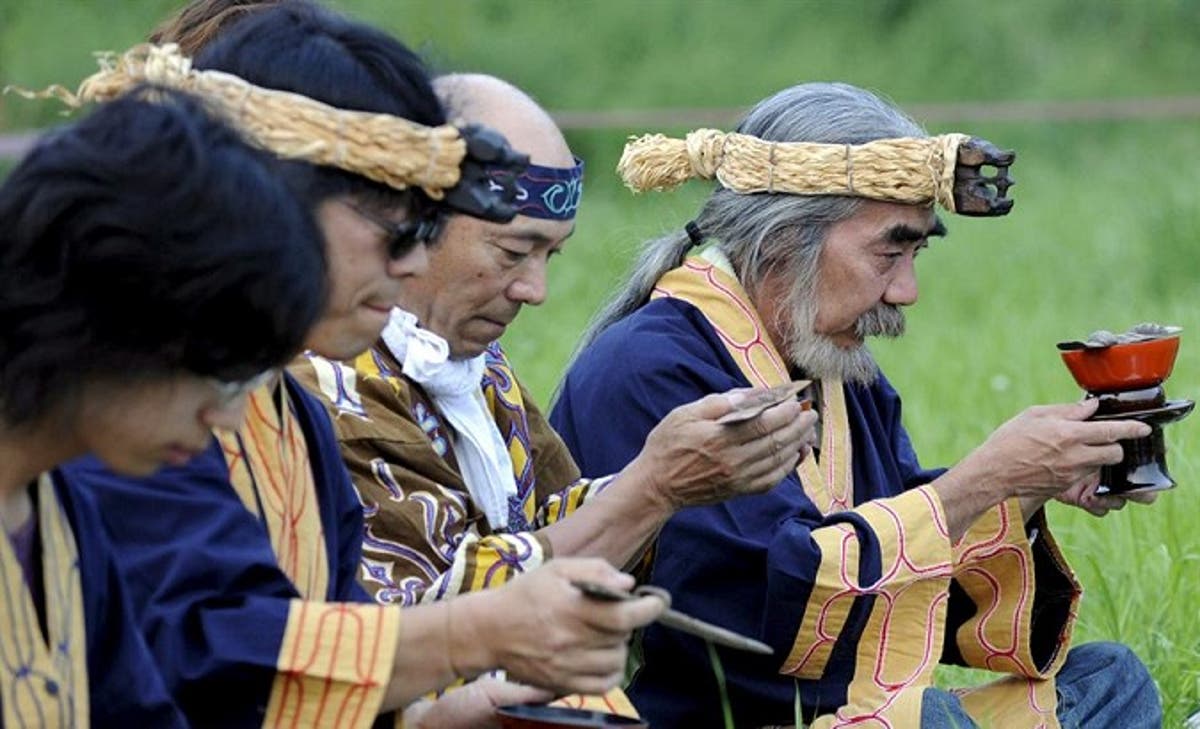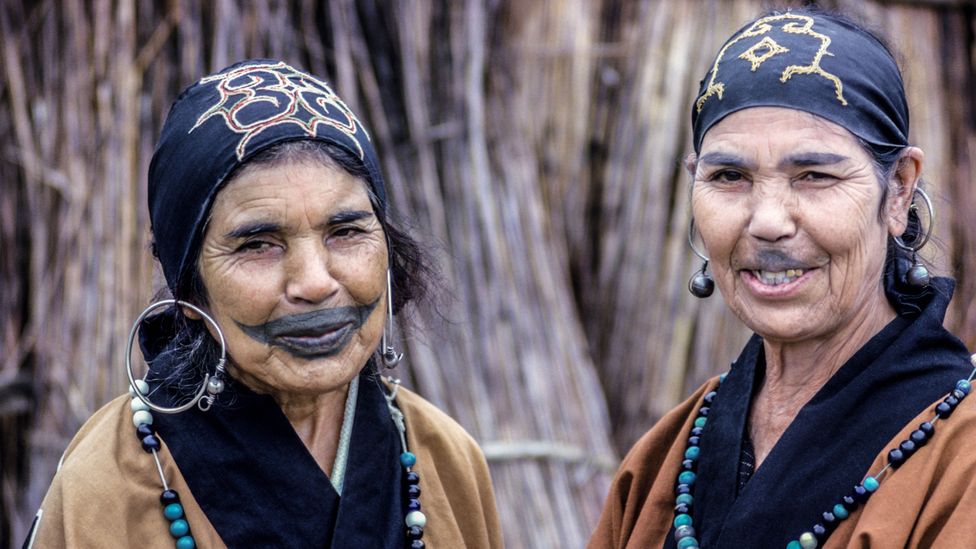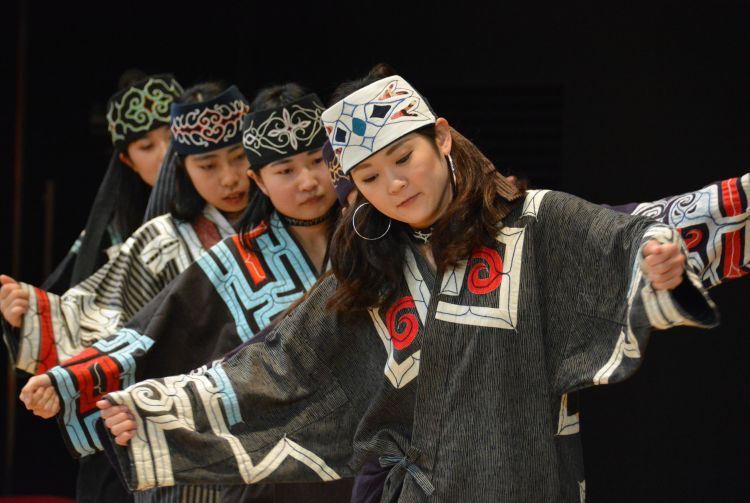
If you’re an observer of the world stage and pride yourself on your internationalist outlook, you’re likely to be familiar with the history and struggles of Aboriginal Australians, Native Americans, or the First Nations of Canada. But chances are, you’re less aware of the history or languages of the indigenous peoples of Japan. In fact, each of Japan’s two main islands has its own people: Honshu to the South was originally inhabited by the Okinawans, while Hokkaido to the North was home to the Ainu, to whom this issue of Language Watch is dedicated.
Originally spoken not only in Hokkaido and on the islands off Russia’s Eastern coast (Sakhalin and the Kurils), the language has now died out altogether in Russia, where the Ainu population numbers under 1,000. And even though estimates in Japan range anywhere between 25,000 and 200,000, there are thought to be only ten native speakers left, making this one of the world’s most endangered languages. Unsurprisingly, given the geographical remoteness of its home territories, Ainu is a language isolate – in other words a language that’s unrelated to any other, as is clear from this first video.
Prior to the 13th century, there was very little contact between the Wa-jin, or ethnic Japanese, and the Ainu. Subsequent centuries were marked by increasing trade and interaction, although the Ainu were able to maintain their culture and way of life to a certain extent.
In the latter half of the 19th century, however, the Japanese introduced a variety of social, political, and economic reforms in hope of Westernising the country. Hokkaido was annexed and laws were passed that restricted the ability of the Ainu to pursue their own cultural activities. They were stripped of their land, customs and language in the hope that they would assimilate to Japanese culture. This law was not in fact lifted until 1997, by which time irreparable damage had been done to the Ainu cultural fabric. It was even in later, in 2008, that the Japanese government officially recognised the existence of the Ainu as an indigenous people. Until then, the official line had always been that there were no ethnic minorities in Japan. No formal apology has ever been made for these injustices.

Like so many minorities the world over, the Ainu have faced systematic discrimination for centuries. Historically they have been regarded as “dirty,” “backward,” or “primitive” and forced to do petty labour. Although the Ainu look distinct from mainstream Japanese, with different shaped eyes and noses, many feel obliged to conceal their identity in various social contexts. In the words of Tsugumi Matsudaira, an Ainu singer and performer “If we disclose ourselves as Ainu when we seek a job, we are refused. If we want to get married, the family doesn’t want us in their homes. My grandfather, grandmother, and mother were Ainu, but they didn’t want others to know.” Poverty and inadequate education remain major problems for many Ainu people – with low access rates to university, a statistic that’s likely to be exacerbated by COVID 19.

The recently implemented Ainu Promotion Act officially recognises the Ainu as Japan’s indigenous people and outlaws hostile sentiments and discrimination against them. The Act also aims to promote Ainu culture as well as industry and tourism throughout Japan. In parallel, a concerted effort is being made to preserve Ainu culture and language.
For example, the National Ainu Museum, which opened in 2020, sets out to educate visitors on six themes from an Ainu perspective: language, world views, lifestyle, history, work and exchange with surrounding people. And with the Olympics still due to be held in Japan, the government also has plans for a facility centred on Ainu culture. Despite the publication of The Ainu Times, a quarterly magazine, and efforts to teach the next generation of Japanese students about the culture, challenges abound. Could it all be a question of too little, too late?

Based on research by Jing Wu of Translation Commons
See all entries from this Language Watch series.jpeg?width=307&name=download%20(1).jpeg)


